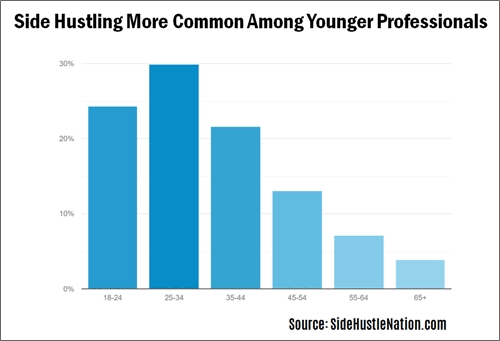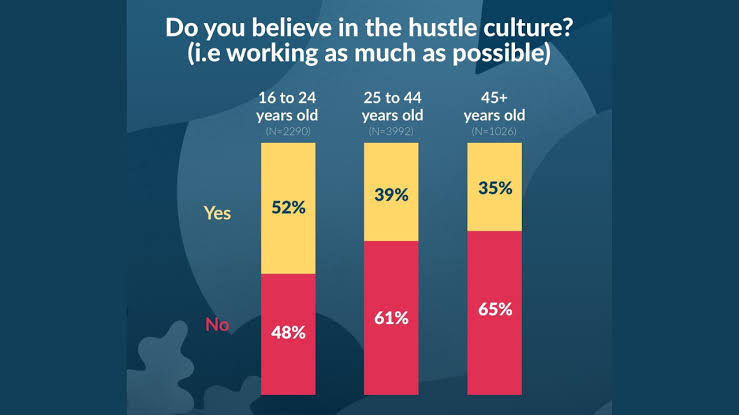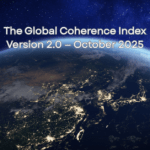The world has never been more connected and a new cultural phenomenon has emerged, reshaping our work ethics and lifestyles: hustle culture. As someone born in 1998, I’ve witnessed the rapid evolution of our global society, riding the waves of technological advancement and cultural shifts.
This post explores a critical aspect of our modern world: the globalization of communication technology and its undeniable role in fostering a culture of never-ending work.
I argue that this cultural shift is not just about working harder; it’s a generational movement towards an unattainable ideal of perfectionism, leading to widespread depression and burnout. We’re not just striving to succeed; we’re pushing ourselves to the brink in pursuit of an elusive, often unrealistic ideal.
Understanding Globalization and Hustle Culture
Globalization, in its simplest form, refers to the process by which people, governments, businesses, and organizations develop international influence and start operating on an international scale. In the context of technological communication, globalization transcends simple business operations. It represents the unification of global cultures, ideas, and values through the rapid exchange of information. The creation of the internet and the rise of social media platforms have not only connected us but also created a global village where cultural norms and work ethics are constantly shared and reshaped.
Hustle culture, a byproduct of this global connectivity, is the glorification of relentless working, often characterized by long hours, minimal rest, and a constant push for higher achievement.
Social media platforms are filled with stories of success tied to non-stop work, promoting the idea that the only path to success is through excessive grind and sacrifice. It’s not just a Western phenomenon; in places like Japan, the term “karoshi,” which translates to “death by overwork,” highlights the extreme end of this culture. The valorization of overworking has seeped into various cultures, subtly influencing our perceptions of success and worthiness.

Constructivist Perspective
In the study of international relations, Constructivism is a theory that emphasizes the importance of social constructs and shared ideas in shaping the behavior of individuals and societies. Applying this lens to our discussion on globalization and hustle culture, we can explore how global interconnectedness has influenced individual perceptions and behaviors. Constructivism posits that our understanding of the world is constructed through our interactions and experiences, which are increasingly global in nature due to tech advancements.
Through social media, individuals are constantly exposed to narratives and images of extraordinary success and hard work. This exposure doesn’t just inform us; it changes what we perceive as normal or desirable.
The stories of tech moguls who succeeded through endless work, or influencers who showcase an infinite hustle are blueprints that construct a new understanding of success and achievement. This constructivist view helps us understand how hustle culture has been internalized globally, transforming individual aspirations and work ethics.
The constant bombardment of these success narratives leads to a reshaping of personal goals, often skewing them towards extreme and sometimes unattainable standards.

The Perfectionism Dilemma
At the heart of hustle culture lies a deeply rooted pursuit of perfectionism. This relentless drive towards the perfect career, life, or social image is a mindset that has been magnified by the global spread of certain ideals via digital connectivity.
Perfectionism, in this context, is not about striving for excellence; it’s an obsession with unattainable ideals, often leading to negative psychological outcomes like anxiety and depression.
Studies and surveys have increasingly highlighted the rise of perfectionism, especially among younger generations. A notable study published in the “Psychological Bulletin” (ChatGPT, 2024) suggests that perfectionism has significantly increased over the past few decades among young people. This rise is attributed to factors like competitive education systems, overly critical parenting styles, and, importantly, the pervasive influence of social media portraying idealized lifestyles and success stories.
This unrelenting pursuit often results in a paradox: the more one strives for perfection, the more unattainable it seems, leading to a cycle of dissatisfaction and mental health issues.
The impact is profound, with increasing numbers of individuals reporting symptoms of anxiety, depression, and burnout.
Generational Perspective
As a member of the 1998 generation, I’ve grown up in a world where the lines between global and local, personal and public, have blurred significantly. We are the digital natives, for whom the world’s information, cultures, and pressures have always been just a click away. I’ve observed among my friends and classmates a relentless drive to excel, fueled by global stories and amplified by social media. Yet, this drive often comes at a cost – a whole generation that suffers from the feeling of inadequacy.
It’s a common trend among my generation to take on an entrepreneurial mindset, we see success stories and instantly feel inspired to mimic them. Acting on this type of inspiration rarely plays out well- since only the best parts of the process are shared on social media, we’re blind to the actual work required. Results are what we’ve talked about: depression, anxiety, burnout, and more… even to the extent of needing medical help.
Burnout stories are reflective of a generation grappling with the relentless pressure to match up to an international standard of success, often at the cost of mental health.
The Path Forward: Promoting Mental Health and Balance
In this age of relentless ambition and hyper-connectivity, fostering global awareness about mental health and work-life balance has never been more important.
We need to collectively redefine success – it shouldn’t just be about extreme productivity or material achievements but about well-being, fulfillment, and balance. Around the world, there are promising initiatives: companies in Sweden experimenting with six-hour workdays, New Zealand’s trials of four-day work weeks, and the growing number of firms offering mental health days off.
Education and awareness campaigns can help by empowering individuals to recognize the early signs of depression and anxiety and seek appropriate help. We should advocate for government policies and corporate practices that support mental health instead of hustle culture. This could include flexible working hours, access to counseling services, and creating a workplace culture where taking mental health days is as normalized as taking sick days.
I encourage readers to pursue a healthier work-life balance. Set clear boundaries between work and personal time, seek support when needed, and engage in activities outside of work that bring joy and relaxation. As we move forward, there is hope that our globalized world, driven by technological advancements, can be reoriented to prioritize mental health and well-being, transforming hustle culture into a culture of holistic success.
References
- Carnegie, M. (2023, 19 abril). Hustle culture: Is this the end of rise-and-grind? BBC Worklife. https://www.bbc.com/worklife/article/20230417-hustle-culture-is-this-the-end-of-rise-and-grind
- Lcsw, O. M. D. (2023, 11 octubre). Hustle Culture: The toxic Impact on Mental Health. Talkspace. https://www.talkspace.com/blog/hustle-culture/
- Ruggeri, C. (2023, 16 mayo). Research shows hustle culture does more harm Than Good. Leaders.com. https://leaders.com/articles/company-culture/hustle-culture/
- ChatGPT. (n.d.). OpenAI. https://chat.openai.com/#









No responses yet